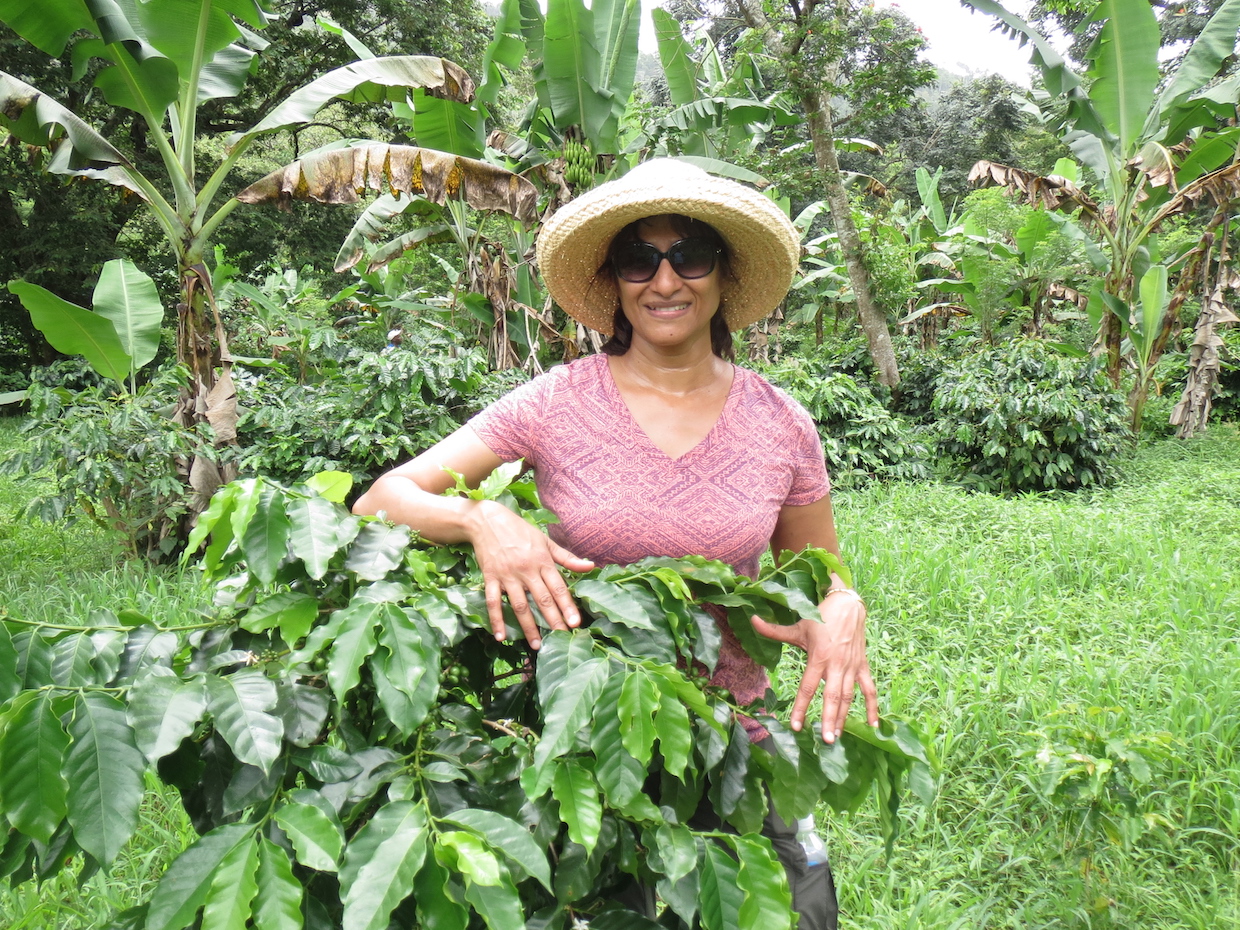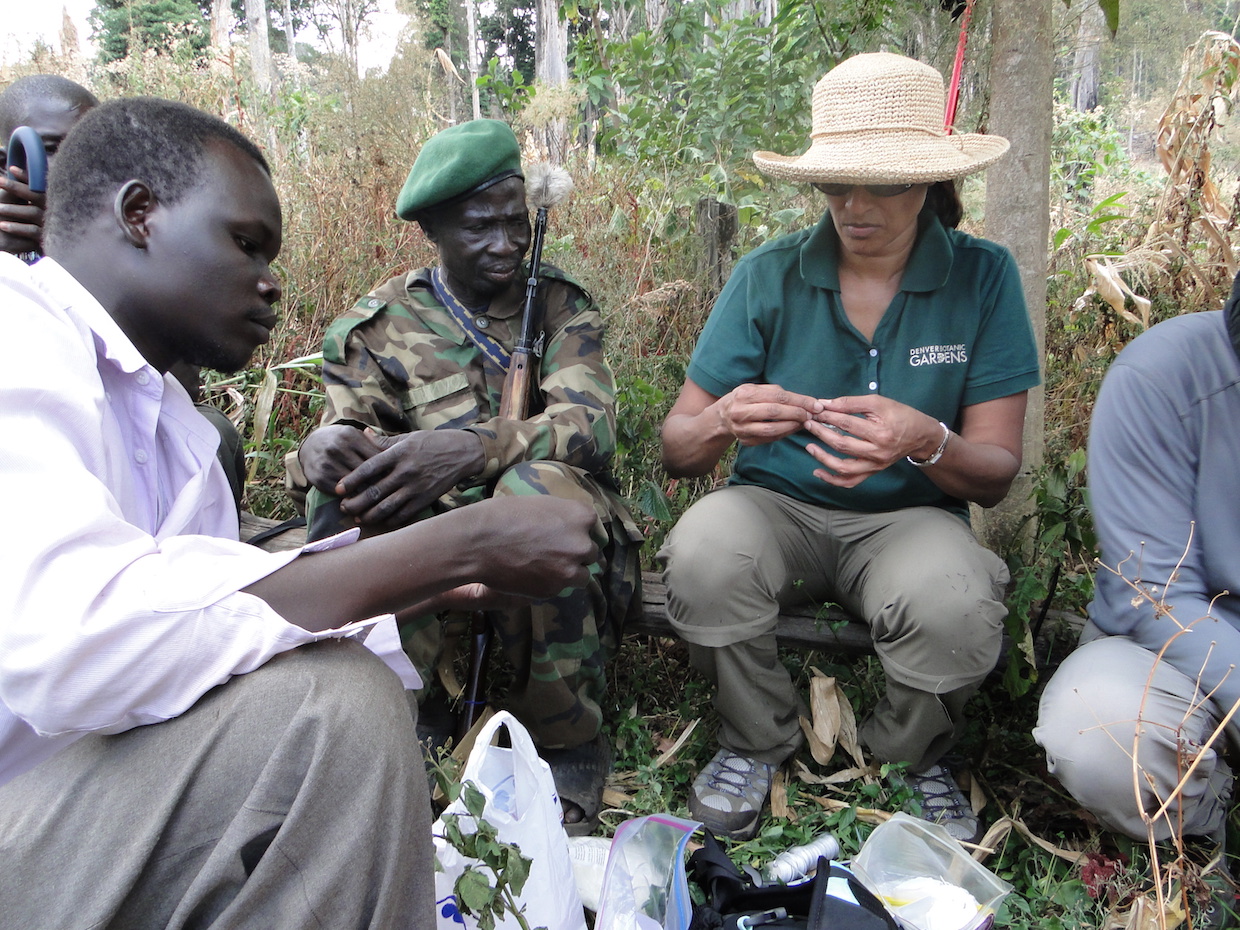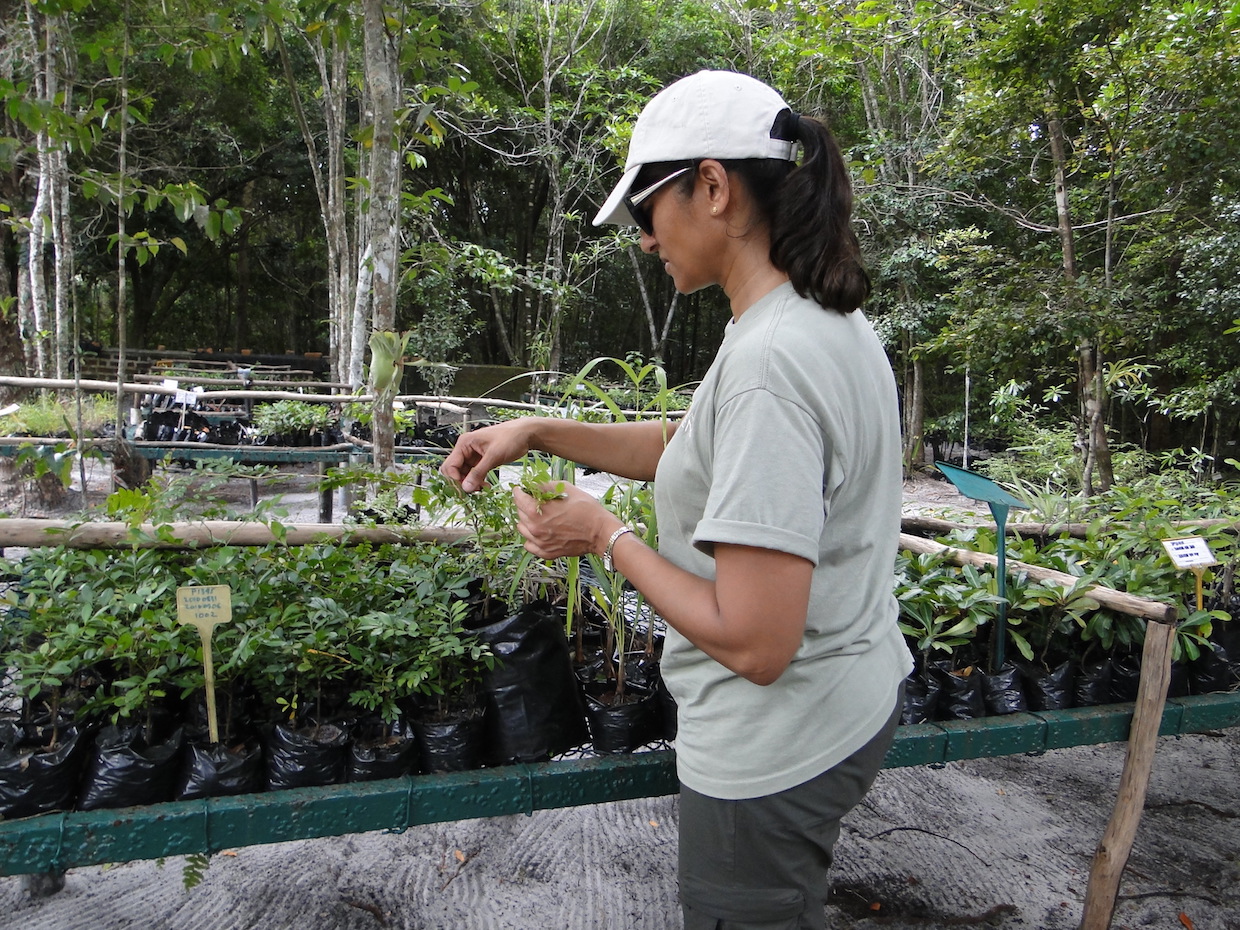Plant scientist and coffee sector leader Dr. Sarada Krishnan was recently named executive director of the International Women’s Coffee Alliance.
Born in India to a family that owned a coffee plantation and other crop farms, Krishnan’s interest in plants and biology at an early age eventually blossomed into a M.S. degree in horticulture from Colorado State University followed by influential doctoral research at University of Colorado on conservation genetics of wild coffee.
Krishnan also happens to own a Jamaican Blue Mountain coffee plantation and distribution company, and was an influential figure in the formation of Jamaica’s chapter of the IWCA, one of 27 country chapters of the international nonprofit that seeks to empower and create market connections for women throughout the coffee supply chain.
We recently caught up with Krishnan to discuss more about her past work, present visions, and the blending of sciences required to lead the dynamic international nonprofit.
(Note: Answers may have been shortened for clarity and readability.)
DCN: Can you give our readers who may not yet know you a brief professional background? And what are you most interested in these days?
SK: I have very broad interests from general horticultural science to biodiversity conservation and empowerment of women and girls. I continue to be involved in conservation of plant genetic resources, including coffee genetic resources. I am also involved as a board member and Vice President of Programs of Women First International Fund, a non-profit organization that funds women’s economic empowerment projects in East Africa and India. Taking on this new role at IWCA, my hope is to combine my coffee science background with the social sciences to develop programs that will create positive change in the lives of women throughout the value chain.
Can you explain your association/history with the IWCA?
I first learned about IWCA when I was planning to attend the SCA expo and Re:CO symposium in Seattle in 2017. After visiting the IWCA website, I wanted to initiate the formation of a chapter in Jamaica, where I have coffee farms. I contacted IWCA, signed up for the breakfast and attended their meeting with different chapter representatives and got to meet some amazing women who were doing great things in their respective countries. Following that, in April 2018, I brought together key women in Jamaica for an initial meeting that led to the formation of the Jamaican chapter of IWCA. A few women in Jamaica had initiated formation of a chapter a few years prior, but it had not taken root. This time, there was great leadership among the women who participated in the meeting, specifically Andrea Johnson, Marshalee Valentine and Dorienne Rowan-Campbell, who were crucial in forming the chapter.
As a leader in both coffee and science — two industries that have broadly, historically been dominated by men — how would you personally characterize the value of women in leadership roles?
Women in STEM and leadership roles bring lived experiences to the table that are unique. Since birth, we automatically assign different gender roles, with girls and women taking on more nurturing tasks while boys and men are taught to be the breadwinners and decision makers. We need to change these societal norms. Women are just as capable as men in serving as leaders. This needs to be inculcated in girls at a young age so that they know that they can achieve what they want in life. Women scientists and those in leadership positions can serve as role models to young women and girls.
What are some of the immediate challenges or opportunities facing the IWCA that you expect to address?
For any nonprofit organization, fundraising is always the number one priority. In a competitive funding landscape with limited resources, the challenge will be to stand out in the crowd. But, this also offers the opportunity to develop programs that will resonate with funders. IWCA has great stories to tell — the stories of courageous and resilient women. Our role will be to develop programs and partnerships that will make a difference in women’s lives across the value chain through our three main focus areas: leadership development, strategic partnerships, and amplified market visibility.
Three Questions with Sarada Krishnan
1. What about coffee inspires you most?
Coffee is a social drink. Many great ideas are generated when people get together to have coffee. How many times have you met someone for a cup of coffee and something concrete came out of a discussion at that coffee table? I recently read the book The Coffee Bean: A Simple Lesson to Create Positive Change by Jon Gordon and Damon West. In that book, the authors use the coffee bean as the metaphor for overcoming challenges and creating positive change through transforming the environment. This inspires me to create change in the lives of coffee farmers through the coffee crop.
2. What about coffee troubles you most?
The impact of climate change on coffee is very concerning. That is why I am a huge advocate for conserving coffee’s genetic resources. We need these resources to make the crop resilient for a sustainable future of the crop and all those who depend on coffee for their livelihoods.
3. What would you be doing if it weren’t for coffee?
If I had not gone into horticulture (and coffee), I probably would have gone into accounting. I love numbers. At one point in my career, I even took accounting classes at the local community college and worked one season for H&R Block doing taxes. I am grateful for that experience, but am glad to be in the field of coffee.
Note: This story is part of DCN’s ongoing “Three Questions” series, featuring people driving meaningful and sustainable progress in the coffee industry. You can nominate someone who inspires you here.
Nick Brown
Nick Brown is the editor of Daily Coffee News by Roast Magazine.
Comment
1 Comment
Comments are closed.









As a man, I see the topic of gender inequality as something very serious. When I first learned about the IWCA I saw it as a sign of the existence of valid, important, and transcendent efforts to overcome this inequality. The work of women in the coffee industry is a work that goes beyond activism, it affects and impacts the lives of women in poor coffee-growing nations. I think it is insulting to the people taking this topic seriously, to quote finding inspiration in a business book that is suited for a 7-year-old. Or saying that if I was not working with the IWCA I would be an accountant. Talk about commitment and depth…. Sigh.